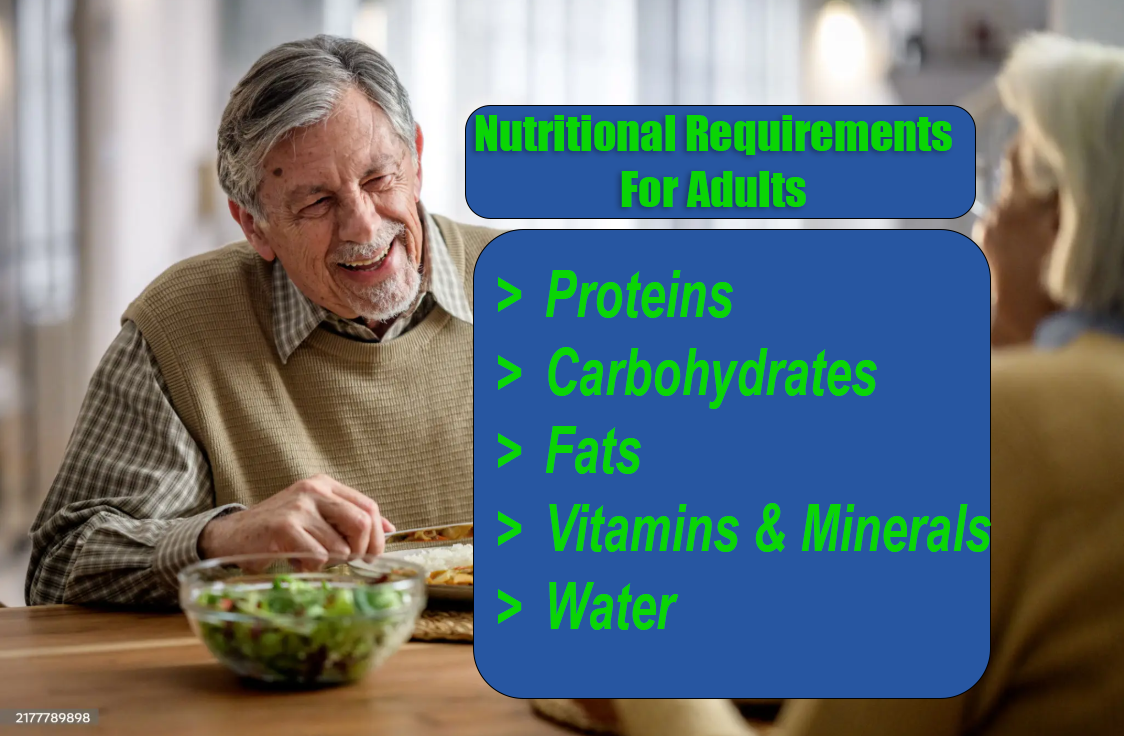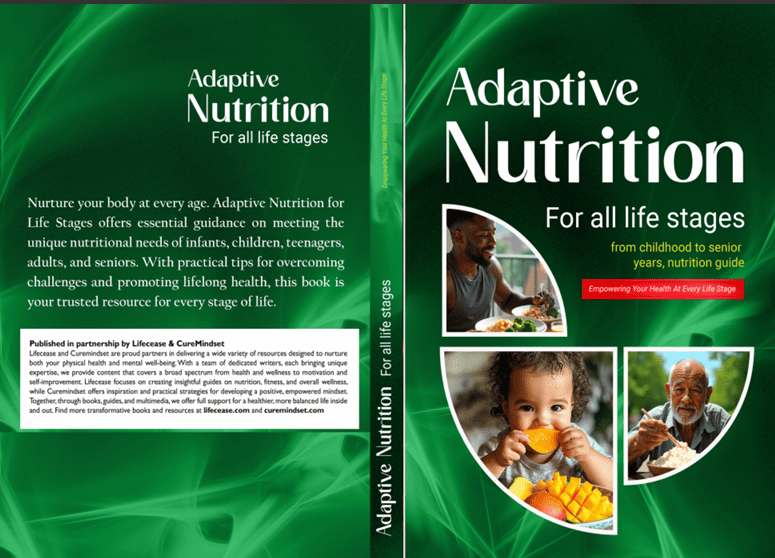![]()
![]()

Your Nutrition Needs Change—So Should Your Diet
When it comes to health and wellness, one truth stands out: the nutritional requirements for adults are not fixed. They change as we move through different phases of life—from the energetic 20s to the transitional 30s and into the maturity of our 40s and beyond. Yet most adults continue to eat as if they’re stuck in a single life stage. This oversight can lead to everything from chronic fatigue and digestive discomfort to fertility issues, stress, and increased risk of disease.
That’s exactly why Adaptive Nutrition for Life Stages was written. This comprehensive guide breaks down what your body needs at every adult stage, offering practical advice grounded in nutrition science. If you’ve ever wondered whether your food choices are truly serving your current lifestyle, this book is your blueprint.
Let’s take a deeper look at what adults need nutritionally—and why adapting your diet might be the smartest decision you make for your health.
In your 20s, it’s all about energy, performance, and laying the groundwork for long-term health. Many adults in this age range rely heavily on caffeine, skip meals, or default to processed foods out of convenience. While the body is often resilient during these years, the impact of poor nutrition begins accumulating silently. The book’s section on maintaining energy levels through balanced nutrition in your 20s outlines how to get the most from your meals by focusing on whole foods rich in complex carbohydrates, lean protein, and essential fats.
As we transition into our 30s, the demands on the body increase—often without us realizing it. Careers advance, family responsibilities grow, and the time available for self-care tends to shrink. This is when nutritional requirements for adults begin to shift dramatically. Your body starts producing fewer digestive enzymes, stress hormones like cortisol may rise, and hormonal imbalances may emerge.
One particularly valuable chapter—Nutrition strategies for dealing with stress and burnout in your 30s—teaches you how to use food to fight fatigue. It recommends key nutrients such as magnesium, omega-3 fatty acids, and B-complex vitamins, which support adrenal function, balance mood, and prevent burnout.
Eating mindfully and strategically in your 30s can not only preserve energy but also lay a strong foundation for hormonal health, mental clarity, and long-term vitality.
By your 40s, the body begins to show signs of wear and tear—but that doesn’t mean decline is inevitable. In fact, this stage can be one of the most empowered if you understand how to meet the nutritional requirements for adults at midlife. Weight gain becomes more common after 40, metabolism slows, and many adults start experiencing issues with blood pressure, cholesterol, or insulin resistance.
The chapter on Managing weight gain after 30 explains that it’s not just about cutting calories—it’s about nutritional density. Adults need more fiber, antioxidants, and high-quality proteins, not less food overall. Nutrient timing and meal composition play key roles in maintaining a healthy weight without crash dieting.
In addition, Adaptive Nutrition for Life Stages covers The role of nutrition in preventing chronic diseases in your 30s and 40s, offering evidence-based insights into how food can actively prevent or slow the progression of conditions such as Type 2 diabetes, heart disease, and cognitive decline. You’ll learn why fiber, phytonutrients, and anti-inflammatory fats should become staples in your diet—and how to include them in realistic, affordable ways.
The nutritional requirements for adults at this stage include:
Understanding these needs can transform your 40s from a period of decline into one of empowerment.

In addition to chapters specifically addressing your 20s, 30s, and 40s, Adaptive Nutrition for Life Stages includes guidance for new parents, working professionals, and adults dealing with digestive issues, fertility challenges, or skin concerns. Each of these topics is explored through the lens of adapting to the nutritional requirements for adults, rather than applying a one-size-fits-all solution.
Some standout chapters include:
These insights are especially helpful for adults trying to strike a balance between career, family, and health. The recurring message throughout the book is that the nutritional requirements for adults are dynamic—not static. What worked for you five years ago might no longer be enough today.
It’s an uncomfortable truth: many adults today are simultaneously overfed and undernourished. This paradox is caused by diets that are high in calories but low in real nutrients. Refined sugars, white flours, and industrial oils dominate modern meals, leaving the body hungry for essential vitamins and minerals.
Adaptive Nutrition for Life Stages urges readers to flip this equation—to consume foods rich in nutrients per calorie. That means prioritizing:
Meeting the nutritional requirements for adults means fueling your body in ways that actually support function, not just fullness. You’ll feel the difference in your sleep, focus, energy, skin, and even mood.
The food choices you made in college won’t carry you through your 40s. And your current habits may not serve you well into older adulthood. That’s why it’s time to stop guessing and start eating with intention.
Understanding the nutritional requirements for adults is not just about avoiding disease—it’s about thriving. Whether you’re aiming to boost fertility, fight fatigue, manage stress, or prevent chronic illness, your diet is one of the most powerful tools you have.
Adaptive Nutrition for Life Stages makes it easy to align your eating habits with your body’s evolving needs. With clear, actionable chapters for every adult life stage, it’s the ultimate resource for anyone serious about long-term health. Don’t wait for symptoms to appear. Take control of your wellness today.
